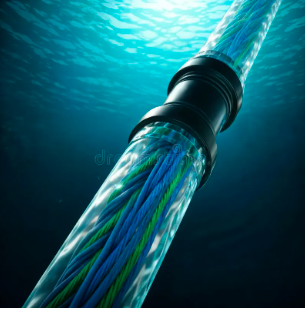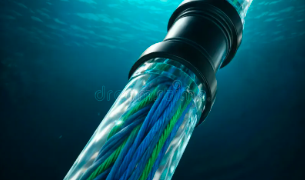
Meta has completed the infrastructure for the 2Africa subsea cable, which it claims is the world’s longest open-access subsea cable system.
In a recent announcement, the tech giant heralded the completion of the 2Africa cable as a pivotal milestone for Africa’s digital future.
Spearheading the design, funding, and deployment of the 2Africa cable, Meta emphasises its role in creating the infrastructure that will foster economic growth and connect over three billion people across Africa, Europe, and Asia—representing more than 30% of the global population.
The 2Africa project is a collaborative venture led by Meta in partnership with the 2Africa consortium, which includes prominent players such as China Mobile International, MTN GlobalConnect, Orange, Telecom Egypt, Vodafone/Vodacom, and the West Indian Ocean Cable Company.
After nearly six years of work, the project was executed by Alcatel Submarine Networks. Gaya Nagarajan, VP of network engineering at Meta, highlighted the initiative’s technological advancements, noting, “Building 2Africa required us to push the boundaries of what’s possible in subsea infrastructure.”
The deployment included advanced spatial division multiplexing technology, allowing for up to 16 fibre pairs per cable—double that of older systems. The cable also features undersea optical wavelength switching for flexible bandwidth management, essential for meeting the growing demands of artificial intelligence, cloud computing, and high-bandwidth applications.
Spanning 45,000 kilometres, 2Africa ranks as one of the largest subsea cable systems globally. It connects Europe (via Egypt) and the Middle East (through Saudi Arabia) and reaches 46 locations worldwide, including 21 landings across 16 African countries. Boasting a design capacity of up to 180Tbps in key sections, the cable aims to surpass the total combined capacity of all existing subsea cables serving Africa.
The construction of the cable involved a significant logistical effort, utilising 35 offshore vessels, amounting to nearly 32 years of vessel operations. Dedicated shore-end operations brought in additional vessels for tasks like cable pulling, guarding, security, and diving support. In remote areas, specialised equipment, including dive decompression chambers and burial tools, was mobilised.
According to a study by RTI International, 2Africa has the potential to generate an economic impact of up to US$36.9 billion, equating to 0.58% of Africa’s GDP, within a few years of operation.
“The arrival of this cable is set to stimulate job creation, foster entrepreneurship, and establish innovation hubs in connected regions. Previous landings of similar cables have demonstrated that reliable internet access correlates with increased employment, enhanced productivity, and a transition to higher-skill jobs,” commented Alex-Handrah Aimé, Meta’s global head of network investments.
Meta envisions empowering African entrepreneurs, creators, and businesses to innovate and collaborate. By working alongside policymakers, regulators, and stakeholders, the company aims to advance Africa’s digital transformation and support its emergence as a significant player in the global digital economy.
In August 2023, the East African segment of the 2Africa cable landed in Mozambique and Tanzania, prompting Master Power Technologies to build a new data centre in Nacala-Porto.
Previously, the cable landed in Yzerfontein and Duynefontein in December 2022, reached Gqeberha in the Eastern Cape in January 2023, and then landed in Amanzimtoti, KwaZulu-Natal, in February 2023.
Mazen Mroué, CEO of MTN Group Digital Infrastructure, expressed that the successful delivery of the cable reflects years of collaboration, technical innovation, and a shared vision among the 2Africa consortium partners to enhance connectivity, stimulate economic growth, and deliver transformative digital experiences across Africa and beyond.
“For MTN, 2Africa signifies more than just a cable; it represents a commitment to what can be achieved when global technology leaders team up with Africa’s champions. This initiative showcases how global reach and African leadership can converge to build the infrastructure necessary for Africa’s next growth phase. Together, we are not only connecting Africa to the world, but also unlocking its full potential,” Mroué stated.


















